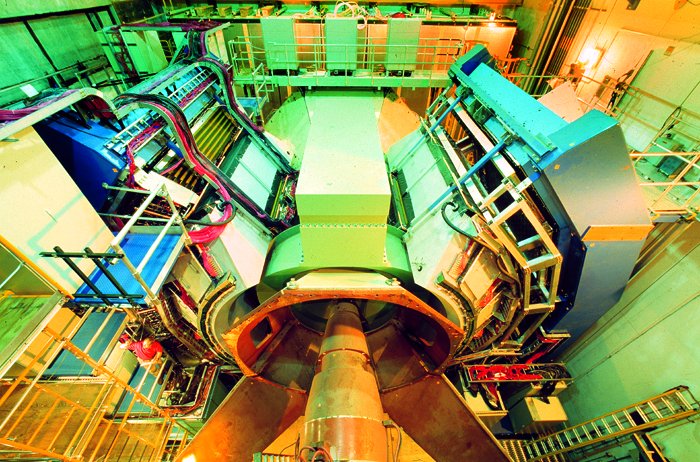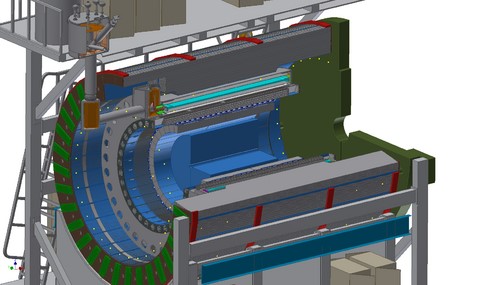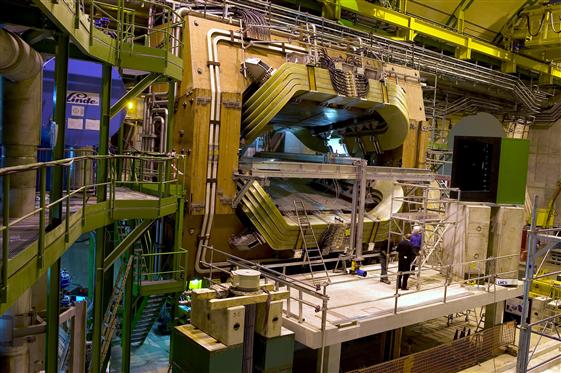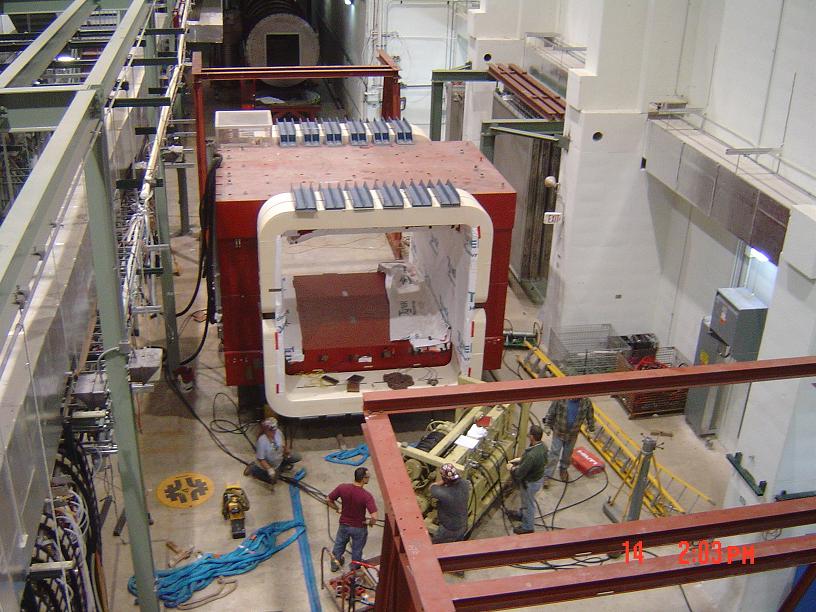PHENIX Experiment

The
PHENIX Experiment was a large experiment at the
Relativistic Heavy Ion Collider (RHIC) at
Brookhaven National Laboratory. RHIC is the most versatile collider in the world, having collided nuclei from hydrogen (protons) to uranium, at center-of-mass energies ranging from a few to hundreds of GeV per nucleon-nucleon collision. RHIC furthermore has the ability to collide polarized proton beams, permitting a range of spin-spin and spin-momentum correlation measurements.
PHENIX, the Pioneering High Energy Nuclear Interaction eXperiment, is an experiment for the investigation of high energy collisions of heavy and light nuclei and protons. PHENIX was designed specifically to measure direct probes of the collisions such as electrons, muons, and photons. In broad strokes, the physics program of PHENIX is to study a wide range of QCD systems, from protons as the simplest stable QCD bound state to collections of QCD bound states in the form of nuclei, to QCD matter at such high energy densities that bound states can't form, and instead a quark-gluon plasma is created. PHENIX took data from 2000 until June 2016 and is now completing data analysis. The Aidala group focuses primarily on analyzing proton-proton collision data from PHENIX to study quark and gluon dynamics within the proton and in the process of hadronization.
sPHENIX Experiment

sPHENIX is a new experiment at RHIC that started taking commissioning data in 2023. The sPHENIX collaboration was officially formed in 2015. See the sPHENIX website for more information on the project. The Aidala group is involved in calorimetry for the experiment and will analyze the polarized proton collision data planned to be taken in 2024.
LHCb Experiment

The LHCb experiment, which stands for "Large Hadron Collider beauty" experiment,
was designed primarily to study beauty (or "bottom") quark bound states and CP violation, related to the matter-antimatter asymmetry in the
visible universe. However, with access to the high-energy proton-proton as well as the proton-lead collisions at the Large Hadron Collider,
a wealth of QCD measurements sensitive to proton structure, quark and gluon dynamics, and hadronization is also possible, which is the focus of the Aidala group. The Aidala group is involved in the Upstream Tracker silicon detector and one of the primary groups driving open data initiatives within the collaboration. At the end of 2018, the NY Times published an interactive piece on the Large Hadron Collider, including LHCb.
SeaQuest Experiment

The
SeaQuest experiment (E906) was part of a series of fixed target Drell-Yan experiments that have taken place at
Fermi National Accelerator Laboratory designed to measure the quark and antiquark structure of the nucleon and the modifications to that structure which occur when the nucleon is embedded in a nucleus. With these measurements, we are also able to quantify the energy loss of a colored parton (quark) travelling through cold, strongly-interacting matter. SeaQuest was commissioned in 2012, started taking physics data in the first half of 2014, and completed data taking in July 2017. Data analysis is ongoing.
 The PHENIX Experiment was a large experiment at the Relativistic Heavy Ion Collider (RHIC) at Brookhaven National Laboratory. RHIC is the most versatile collider in the world, having collided nuclei from hydrogen (protons) to uranium, at center-of-mass energies ranging from a few to hundreds of GeV per nucleon-nucleon collision. RHIC furthermore has the ability to collide polarized proton beams, permitting a range of spin-spin and spin-momentum correlation measurements.
The PHENIX Experiment was a large experiment at the Relativistic Heavy Ion Collider (RHIC) at Brookhaven National Laboratory. RHIC is the most versatile collider in the world, having collided nuclei from hydrogen (protons) to uranium, at center-of-mass energies ranging from a few to hundreds of GeV per nucleon-nucleon collision. RHIC furthermore has the ability to collide polarized proton beams, permitting a range of spin-spin and spin-momentum correlation measurements.


 The
The